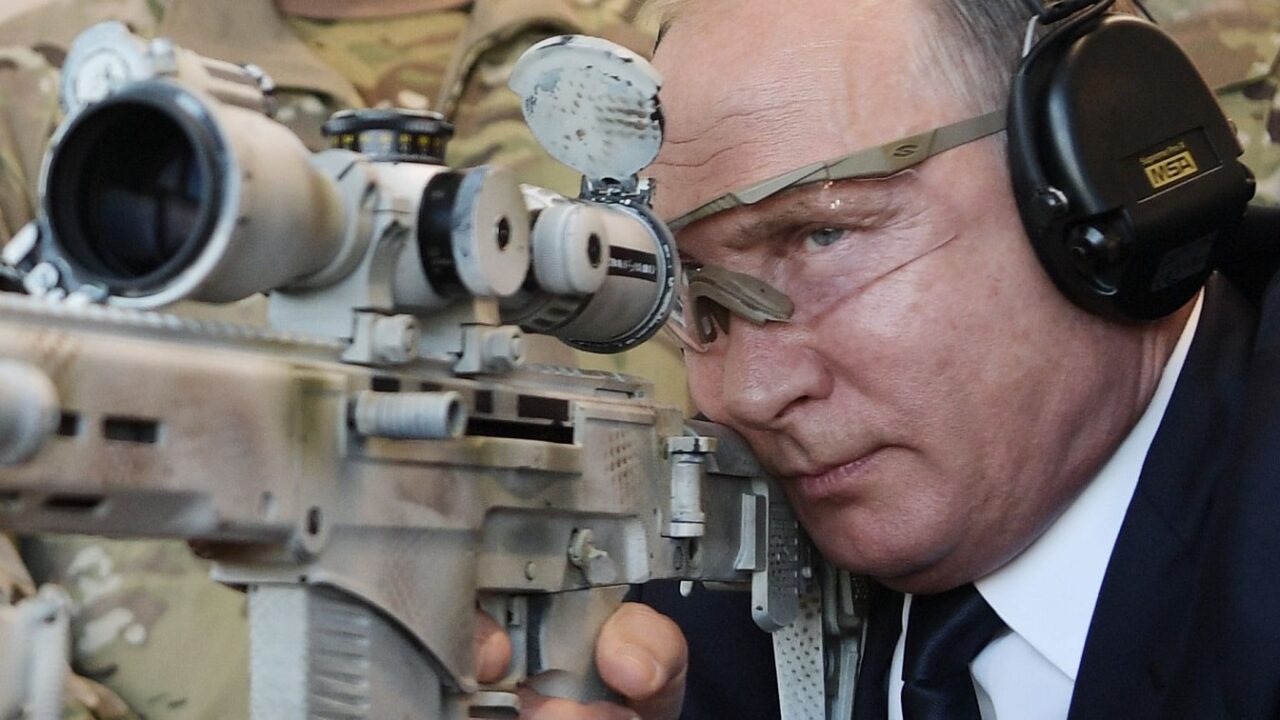Iran and Russia are offsetting their deepening international isolation by stepping up their bilateral military, foreign policy, and economic cooperation.
Since Russia’s February 2022 unjust and unprovoked invasion of Ukraine, their bilateral relations have blossomed into a strategic partnership that deeply undermines American interests in Europe, Eurasia, and the Middle East.
American action is needed—now.
After Moscow’s initial offensive against Kyiv was blunted, Russia turned to Iran to provide additional firepower, including armed combat drones, rockets, and ammunition for small arms, artillery, and tanks.
Perhaps more troubling, Iran, which boasts the largest missile force in the Middle East, also may provide short-range ballistic missiles to Russia for use in the Ukraine campaign.
In return, Iran announced that it will receive fourth-generation Russian Su-35 fighters from Moscow this year; Tehran reportedly remains eager to purchase other Russian military hardware, too.
There are also concerns that Moscow may aid Tehran’s unbridled nuclear and long-range missile programs, which would have devastating effects on international stability and security, including threatening the U.S. homeland.
The economies of both Russia and Iran depend heavily on energy exports. Not surprisingly, Moscow and Tehran are cooperating closely to manipulate oil prices and move oil via Iran’s “ghost fleet” oil tankers to evade U.S. sanctions.
The Biden administration hasn’t sufficiently addressed the ballooning alliance between Iran and Russia and has failed to deter or contain the aggressive foreign policy of either.
As such, Washington must develop an overarching framework for undermining the power of both, penalizing dangerous cooperation between the two, and ratcheting up stress on their bilateral ties.
To protect and advance U.S. interests, Washington should:
Declare the 2015 Iran Nuclear Agreement Dead and Apply Maximum Pressure Against Iran. By escalating sanctions against Tehran and ending U.S. civilian nuclear waivers that substantially benefit Moscow, Washington can curtail their bilateral nuclear cooperation and reduce the financial resources available to both sides for developing their strategic axis.
Counter Russian-Iranian Collaboration Against Punitive Sanctions. Washington should crack down not only on the Russian and Iranian entities that evade sanctions, but also on third-party entities that facilitate sanctions evasion, including countries that provide flags of convenience to “ghost ships.”
Undermine Iran’s Drone Production and Transfers. Washington and its allies and partners must implement economic sanctions, enhanced export controls, and counterproliferation efforts on Western-made components used in Iranian drones, particularly microchips. The U.S. also should consider supporting cyber operations and Israeli efforts to disrupt operations at Iran’s drone factories through sabotage and covert strikes, such as the drone attack that damaged an Iranian factory in January.
Strengthen Missile Defenses Against Iranian Drone and Missile Threats. The Pentagon should ensure that U.S. air defense capabilities are deployed based on continuously updated risk assessments. Washington also should help upgrade the air defenses of regional allies and partners through appropriate cooperation and arms sales, with the goal of building an integrated, regional air defense system.
Increase U.S. Oil and Gas Exports to Reduce Demand for Iranian and Russian Energy Exports. The Biden administration should reverse course and encourage—rather than discourage—increased U.S. energy production to apply downward pressure on domestic and global oil prices and reduce the demand for energy exports from Iran and Russia, their largest source of export revenues.
Considering their regional and global geopolitical ambitions, the deepening strategic partnership between Iran and Russia poses a rising threat to the U.S., its allies, and partners in Europe, Eurasia, and the Middle East.
Indeed, the strengthening alliance between Iran and Russia already has been a contributing factor behind the recent Chinese-brokered détente between Iran and Saudi Arabia, as well as the end of Arab efforts to isolate Syria’s Assad regime, which Iran and Russia support.
As such, failing to quickly address these troubling ties—and the multiple threats that arise from them—will only lead to more international instability, including in the war in Ukraine.
Washington and like-minded countries urgently need to take steps now to undermine and counter the anti-American Russian-Iranian axis before additional damage is done to American national interests.
James Phillips is a Visiting Fellow for Middle Eastern Affairs at The Heritage Foundation. Peter Brookes is Heritage’s Senior Research Fellow for Weapons of Mass Destruction and Counter Proliferation.

